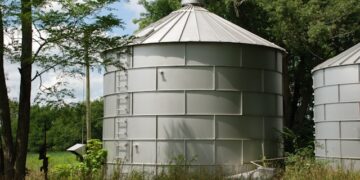Choosing the right driveway material is essential for enhancing your home’s curb appeal, durability, and functionality. With so many options available, it can be challenging to determine which material best suits your needs. Factors such as climate, maintenance, cost, and aesthetic appeal all play a role in the decision-making process. In this guide, we’ll explore the best driveway materials, highlighting their pros and cons to help you make an informed choice.
Asphalt Driveways
Asphalt driveways are one of the most popular choices for homeowners due to their affordability and smooth finish.
Pros:
- Cost-effective compared to other materials
- Quick installation and ready for use within a few days
- Smooth surface makes it ideal for vehicles
- Cold-weather friendly, as it expands and contracts without major damage
Cons:
- Requires regular sealing to prevent cracks and wear
- Can soften in extreme heat, leading to ruts
- Limited design options, as it typically comes in black or dark gray
Concrete Driveways
Concrete driveways are known for their durability and versatility, making them a long-term investment for homeowners.
Pros:
- Highly durable, lasting 30+ years with proper care
- Low maintenance, requiring only occasional sealing
- Customizable options, including stamped and colored designs
- Can withstand heavy loads without major damage
Cons:
- Higher upfront cost compared to asphalt
- Can crack in extreme temperature fluctuations
- Stains easily, requiring prompt cleaning to prevent discoloration
Gravel Driveways
Gravel is a budget-friendly and eco-friendly option, offering a rustic look that blends well with natural surroundings.
Pros:
- Inexpensive and easy to install
- Provides excellent drainage, reducing puddles and water runoff
- Eco-friendly as it allows water to seep into the ground
- Can be easily replenished or reshaped as needed
Cons:
- Requires frequent replenishing due to shifting and erosion
- Can be messy, with gravel scattering outside the driveway area
- Not ideal for snowy climates, as shoveling can displace the gravel
Paver Driveways
Pavers offer a high-end look and come in various materials like brick, concrete, and natural stone.
Pros:
- Aesthetic appeal, available in numerous colors and patterns
- Highly durable, with proper installation lasting decades
- Easy to repair, as individual pavers can be replaced
- Slip-resistant, making it a safer option for walkways and driveways
Cons:
- Higher initial cost compared to asphalt and concrete
- Weeds can grow between pavers if not properly sealed
- Requires periodic re-leveling as pavers may shift over time
Brick Driveways
Brick driveways provide a timeless, classic appeal, often seen in historic or upscale properties.
Pros:
- Elegant and traditional look, adding charm to any home
- Long-lasting material, with some brick driveways lasting over 50 years
- Environmentally friendly, as bricks are made from natural materials
- Can be reused or repurposed if needed
Cons:
- Expensive, both in material and labor costs
- Can shift and crack, requiring occasional maintenance
- Moss and weeds can grow, requiring regular cleaning and sealing
Stamped Concrete Driveways
Stamped concrete offers the look of high-end materials like stone or brick at a more affordable price.
Pros:
- Customizable designs, including textures and colors
- Less expensive than pavers, while still providing a high-end look
- Durable and low-maintenance, with proper sealing
- Can increase property value by enhancing curb appeal
Cons:
- Prone to cracking, especially in areas with heavy freeze-thaw cycles
- Color may fade over time if not properly maintained
- Requires sealing to maintain its appearance and durability
Permeable Driveways
Permeable driveways, such as porous concrete or permeable pavers, are designed to reduce water runoff and improve drainage.
Pros:
- Eco-friendly, allowing rainwater to seep into the ground
- Reduces flooding risks and minimizes water pooling
- Durable and long-lasting, with proper installation
- Ideal for areas with strict drainage regulations
Cons:
- Higher installation costs due to specialized materials
- Requires periodic cleaning to prevent clogging
- Not as widely available as traditional driveway materials
Choosing the Best Driveway Material for Your Home
When selecting the best driveway material, consider the following factors:
- Climate: In colder regions, asphalt and pavers perform well, while concrete can crack in extreme freeze-thaw cycles.
- Budget: Gravel and asphalt are the most affordable options, while brick and pavers tend to be more expensive.
- Maintenance: Concrete and pavers require less maintenance than gravel and asphalt, which may need frequent sealing or replenishing.
- Aesthetic Appeal: Pavers, brick, and stamped concrete offer the most design variety, while asphalt and gravel provide a more basic look.
- Durability: Concrete, pavers, and brick driveways have the longest lifespan, while gravel and asphalt require more frequent upkeep.
Conclusion
Selecting the right driveway material is a significant investment that affects both the functionality and curb appeal of your home. Whether you prioritize affordability, durability, or aesthetics, there is an option that fits your needs. Before making a final decision, consider your climate, budget, and long-term maintenance requirements to ensure the best choice for your property.









